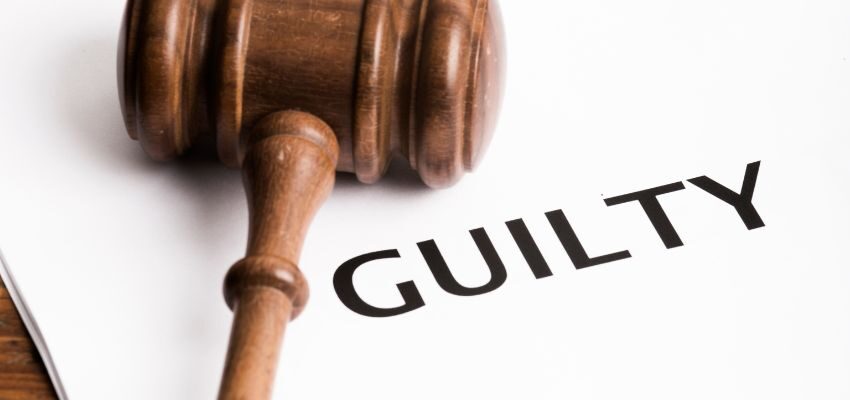What Is Deferred Adjudication? Everything You Need To Know

Published June 11, 2024
Deferred adjudication could be your ticket to a clean record—but is it as good as it sounds? This legal option allows you to avoid a formal conviction by agreeing to meet certain conditions set by the court. However, it’s essential to understand the terms and potential consequences before moving forward. Is it the right choice for your situation?
In this article, we scrutinize the ins and outs of deferred adjudication. Let’s compare it to regular probation, weigh its pros and cons, examine its common uses, and address the burning questions people often have. Don’t miss out on understanding this potentially life-changing legal option.
What Is Deferred Adjudication?
Deferred adjudication is a plea agreement where an individual pleads guilty or doesn’t contest criminal charges. Instead of issuing a conviction, the court places the defendant on probation with specific conditions to fulfill. These may include community service, attending rehabilitation programs, maintaining employment, or avoiding further legal issues.
This process lets defendants avoid the long-term consequences of a criminal conviction. It also promotes their rehabilitation and personal growth. However, if you fail to follow probation terms, the original charges may be reinstated. This could lead to conviction and sentencing.
A common misconception about deferred adjudication Texas is that completing it erases the criminal charge from one’s record. This is not true. Even after meeting all the requirements, the record remains intact. To seal it, one must file a petition for non-disclosure.

What Distinguishes Deferred Adjudication From Regular Probation?
There’s a significant difference between deferred adjudication and standard probation. In deferred adjudication, the defendant pleads guilty or no contest. But, the court postpones the judgment and puts them on probation. If the defendant completes probation, the charges are dismissed. This may allow expungement or sealing of the record.
In regular probation, the defendant is convicted and sentenced to probation as part of their punishment. Unable to comply with the probation terms can lead to further penalties, including incarceration.
Advantages Of Deferred Adjudication
Deferred adjudication presents numerous advantages that make it an appealing choice for defendants.
- Preventing a conviction. One of its most significant benefits is the ability to avoid a conviction. Doing so allows an individual to maintain a clean criminal record. This is particularly advantageous when applying for jobs, housing, or any situation where a spotless record is a must.
- Decreased penalties. The penalties are often less severe compared to those following a conviction. This can result in shorter probation. It also means lower fines. It can help defendants avoid jail. So, it’s a more manageable option.
- Possibility for expungement. Completing the probation period can lead to the expungement of charges. This can significantly improve jobs, housing, and other opportunities. A criminal record might otherwise impede them.
- Rehabilitation opportunities. Deferred adjudication lets offenders join rehab or therapy programs. It’s beneficial for those with addiction, mental health issues, or behavioral problems. The proactive approach can help reduce recidivism and allow better reintegration into society.
- Cost and time efficiency. Typically, it’s less expensive and quicker than undergoing a full trial. This can save both the defendant and the judicial system significant time and money. In the long run, it’s a more efficient method for resolving legal issues.
Deferred adjudication is balanced. It holds individuals accountable and provides paths for rehabilitation and future success. However, it’s not accessible for all offenses and varies by state.
Disadvantages Of Deferred Adjudication
Despite the benefits, deferred adjudication also has several drawbacks you should know.
- Strict compliance. Defendants must meticulously adhere to all probation conditions. It may include community service, fines, and regular check-ins with a probation officer. Any failure to comply can result in reinstatement of the original charges. Sadly, it may lead to jail time and a permanent criminal record.
- Public record. The arrest and deferred adjudication records remain accessible to the public. An arrest record, even without a conviction, can lead to unfavorable decisions and impact future employment or housing opportunities. Employers and landlords often conduct background checks.
- Limited availability. It’s not available for all offenses, especially for serious felonies. The eligibility also varies by state. For instance, violent crimes, sexual offenses, and major drug charges are often excluded. Some states have stricter requirements. This makes this option less accessible to many defendants.
- Future implications. Even if charges are dropped after success, they can hurt future opportunities. This is likely, especially in employment, education, and housing. The impact can be a big barrier. This is especially true for people seeking jobs in sensitive fields like education, healthcare, or finance, which have strict background checks.
In Which Situations Is Deferred Adjudication Most Commonly Applied?
Courts frequently use deferred adjudication in non-violent cases, including drug possession, theft, and some forms of assault. This legal process allows defendants to plead guilty or no contest to offenses in exchange for the opportunity to avoid a formal conviction. The requirement is to complete a probationary period and meet specific court-set conditions.
It’s especially common in states like Texas, where the law explicitly supports this plea for eligible offenses. Successfully completing the terms enables individuals to move forward without the lasting impact of a criminal conviction. It’s considered crucial for securing employment, housing, and other future opportunities.
Frequently Asked Questions About Deferred Adjudication
What is the length of the probation period?
The duration of the probation period can vary, ranging from a few months to several years. This length is determined by several factors, including the nature and severity of the crime and the individual’s criminal history.
For instance, non-violent offenses might lead to a shorter probation period, whereas more severe or repeated violations could result in a longer term. Additionally, the judge may consider the individual’s behavior and compliance with previous legal requirements when setting the probation duration.
Will deferred adjudication keep me from getting a job?
While it can help avoid a formal conviction, the arrest and your placement on deferred adjudication may still appear on your record. This can sometimes affect job prospects. However, successful completion and potential expungement can mitigate these effects.
What happens when you complete deferred adjudication?
Upon completing the probation terms, the charges against you are generally dismissed. Depending on state laws, you may then qualify to have the arrest and deferred adjudication records expunged or sealed.
Does completing deferred adjudication remove a criminal charge from a person’s record?
Completing deferred adjudication does not make it disappear. To seal the record, you must file a petition for non-disclosure. However, certain offenses are not eligible for this. Crimes involving family violence cannot be sealed. Additionally, if the charge is a felony, there’s a mandatory waiting period of five years from the completion of probation before one can file for non-disclosure.

Steering Through Deferred Adjudication Toward A Brighter Future
Deferred adjudication offers a great chance to avoid formal convictions. It lets people participate in rehab as long as they follow probation conditions. Understanding the benefits, potential drawbacks, and intricacies of its operation in various jurisdictions can help people carry out well-informed decisions and navigate the legal landscape more effectively. Take the time to explore your options and consult a legal expert.
Advertisement
Save 90% Per Minute On Jail Calls With Us
US prisons charge lots of money per minute for long distance inmate calls. The loved ones of inmates are left to pay this bill. For a ten minute phone call you may find yourself paying over one hundred dollars. With SecurTel, you can reduce this charge to a fraction of the cost and only pay the local calling rate. Make calls from across the US or internationally for the local rate and help your family stay connected during a difficult time. Learn more about how to sign up for inmate calls here.

This Content Is Fact Checked
We have conducted thorough fact-checking on this content in-house. Get detailed insights into our website’s editorial standards by clicking here.

About The Author
Hello! I’m Corinne, a nursing graduate from Riverside College with a flair for writing. Thanks to the thorough research into each piece, my work stands out for its quality and accuracy. I believe in the power of storytelling to connect with people from all walks of life.



